Hackers Launch Cyberattack On Group Opposing A Nuclear Iran
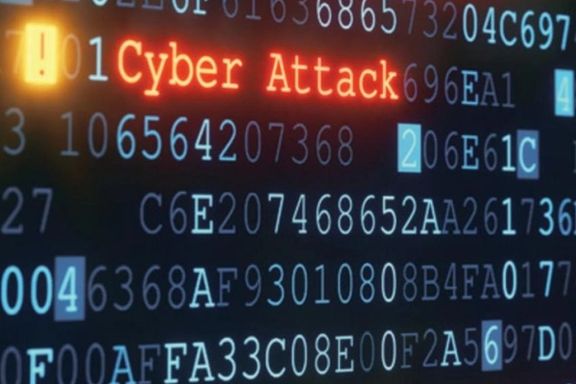
United Against Nuclear Iran (UANI), an advocacy group has said it was the target of Iranian hackers, calling on the US impose sanctions on those responsible.

United Against Nuclear Iran (UANI), an advocacy group has said it was the target of Iranian hackers, calling on the US impose sanctions on those responsible.
In a statement on Tuesday, UANI, based in the United States, said it suspected that APT35, also known as Charming Kitten, a well-known Iranian hacking group launched a series of cyberattacks, “Specifically targeting its leadership and members of its Advisory Board.”
UANI CEO Ambassador Mark D. Wallace was quoted as saying, “Those responsible managed to procure data outside of the public realm, impersonated our leadership in communications with former senior officials of the US government, and attempted to harvest Gmail credentials.”
He added that UANI took immediate action upon discovering these attacks “and has notified the relevant law enforcement authorities to request a criminal investigation.”
The group urged the authorities to investigate the incidents and for the US “to enhance its cyber security cooperation with its friends and allies. UANI further urges the Biden Administration to impose fresh economic sanctions against those responsible.”
UANI added that such attacks will not deter it “from achieving its goal of ensuring the regime fails in its pursuit of nuclear weapons, ends its support for terrorism, and stops its oppression of the Iranian people.”
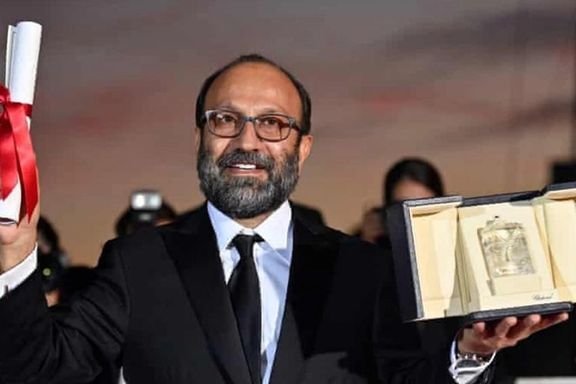
Iran's Oscar-winning film director Asghar Farhadi has distanced himself from the government and the Revolutionary Guard in a statement published on Tuesday.
Farhadi wrote the statement in response to a remark by one of the IRGC's filmmaking organization that previously funded a number of Iranian movies. The official had said: "Farhadi is an intelligent filmmaker. He behaves in a way to please both the government and those who are outside the government," in a way accusing Farhadi of hypocrisy.
This comes while some film critics in Iran and abroad have accused Farhadi of showing the Islamic Republic in a good light to please the ruling mullahs. In his latest film that has been nominated by the government as Iran's entry for the Academy Award, Farhadi showed Iranian prisons in a way the critics described as beautifying a violent regime.
Farhadi said he has no problem if the government decides to pull his film, A Hero, out of the competition for an academy award. He has already won two academy awards for his films A Separation (best foreign language film screenplay in 2012) and Salesman (best foreign language film in 2017). A Hero won the Grand Prix in Cannes Film Festival earlier this year.
He told the IRGC official: "I should say very clearly that I hate you!" adding "How can you deceitfully link me to a government whose hardliners have done everything to tarnish my image?" Farhadi also said he has already declared his views about the downing of a passenger aircraft by the IRGC in 2020 and the murdering of protesters in 2019 as well as causing the death of thousands of Iranians by ignoring their need for vaccines against COVID-19. However, he did not say where he publicized his views about these atrocities. Critics had previously lashed out at him for not expressing his views on these matters.
Meanwhile, the renowned filmmaker revealed for the first time that his passport was repeatedly confiscated at the Tehran airport and asked once again, "How can you link me to a government that has said many times that I had better not return to Iran." It is still not clear whether Farhadi released this statement from abroad or he is in Iran, in which case it could entail punishment by the regime.
Addressing the IRGC official, Farhadi said: "I have never had any sympathy with your backward thoughts and approaches and have never needed to be praised by you. While you have accused me for years of portraying Iran disparagingly, now some others are alleging that I am beautifying the regime."
He added: "If you think nominating my film as Iran's entry for anAcademy Award brings me under your flag, I declare very clearly that I have no problem with withdrawing my film from the competition."
Farhadi added that he regrets that his decision to remain in Iran and make films in Iran has led to the belief that he is a hypocrite. He also promised that he will soon speak out clearly about the other controversies surrounding himself and his movies.
Some two months ago, referring to the way the Iranian government handled the COVID-19 pandemic, Farhadi said the people are angry that "the system" has not taken any decision to improve people's lives. He told the US movie publication Hollywood Reporter that Iranians will never forgive the ban on importing of US and UK-made vaccines.
The Islamic Republic of Iran's Supreme Leader Ali Khamenei banned the purchase of American and British vaccines in January, and his decision reportedly led to thousands of avoidable deaths.

US President Joe Biden and China's Xi Jinping discussed harmonizing their positions ahead of the Nov. 29 Iran nuclear talks, a top US official said on Tuesday.
Officials from Iran and the six nations that struck the pact - Britain, China, France, Germany, Russia and the United States - will meet in Vienna to see if Tehran and Washington can agree to resume compliance with the deal under which Iran curbed its nuclear program to gain relief from US, EU and UN sanctions.
In 2018 then-President Donald Trump withdrew the United States from the pact among the major powers and Iran restoring harsh US sanctions, prompting Tehran to begin violating its nuclear restrictions about a year later.
"The two presidents had the chance to talk about how we can align our perspectives heading into that meeting so that the P5+1 is united in dealing with Iran and trying to pave the way for a return to the (deal)," White House National Security Adviser Jake Sullivan said in a virtual think tank appearance.
While China favors reviving the agreement, it has tended to place the onus on the United States, rather than Iran, blaming Washington for having abandoned the deal and giving Tehran an economic lifeline by buying Iranian oil despite US sanctions.
Report by Reuters
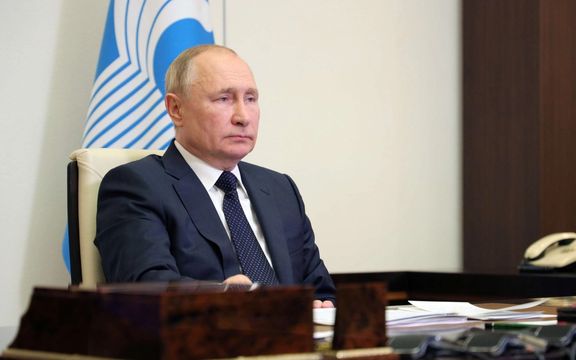
Iran’s President Ebrahim Raisi in a phone call with Russia’s Vladimir Putin on Tuesday said his country “is very serious” about nuclear talks with world powers.
Raisi highlighted the need to conclude a new comprehensive agreement with Russia. "We are ready to conclude the document on long-term comprehensive cooperation between the two countries in order to accelerate the process of the further expansion of bilateral interaction," Tass news agency quoted him as saying.
The two presidents touched upon a series of regional issues, including Afghanistan and tension in the South Caucasus, the official IRNA news website said.
Rouhani also thanked Putin for Russia’s positions on Iran’s nuclear issue and the lifting of US sanctions, saying that Tehran insists on removing them.
Multilateral talks in Vienna aimed at reviving the 2015 nuclear agreement with Iran are scheduled to resume in less than two weeks. Iran interrupted its participation in the talks in June and after a five-month delay and pressure by the West it has finally agreed to return to negotiations.
Raisi also thanked Russia for its efforts for “stability and calm in southern Caucasus, where after a war between Armenia and Azerbaijan last year tensions remain high. IRNA said the two sides emphasized that any geopolitical change of international borders in that region would not be acceptable.
Putin promised to expedite a 20-year cooperation agreement with Iran and help boost the level of bilateral economic and trade ties. He also highlighted cooperation in Syria and said, “We succeeded with a lot of effort to save Syria’s independence and destroy the nucleus of terrorists in that country’” IRNA reported.
Russia’s Tass news agency said that Raisi spoke about shared interests and emphasized that "the positions of Tehran and Moscow are close on many international issues. Opposing the unilateral approach and boosting multipolarity are the common features of the two states.”
Iran’s existing cooperation agreement with Russia dates to 2001 and it has been extended every five years, but last year Tehran asked to review and expand the agreement.
With its economy under the pressure of US sanctions, Iran has been trumpeting the need to expand ties with “the East”, meaning mainly Russia and China. It has also signed a 25-year strategic cooperation agreement with Beijing.
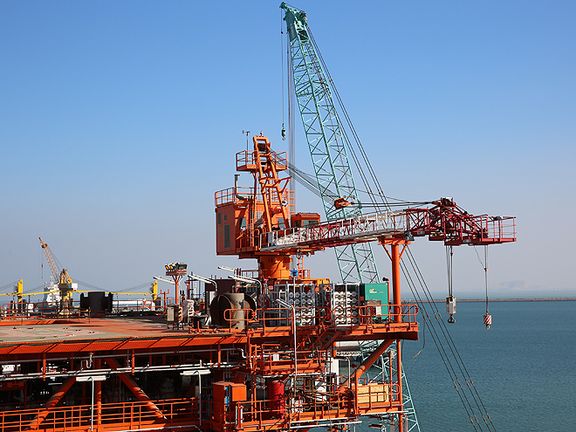
The lucrative Chalous gas field in the Caspian Sea looks increasingly to be at the center of discussions underway over an Iran-Russia 20-year cooperation deal.
In June, Iran’s Khazar Exploration and Production Company (Kepco), then touted as the field’s main developer, suggested the field held 30 percent of the developable natural gas reserves of all Caspian Sea littoral counties and could potentially meet 20 percent of all European demand for gas.
But those figures may need revising, upwards - a point well grasped in Moscow. According to Simon Watkins, of Oilprice.com, further studies have revealed that the field has far more reserves than previously thought, with a total 7.1 trillion cubic meters, fully half the reserves of South Pars, Iran’s huge field in the Persian Gulf.
Watkins reported Monday that this has led to a revised understanding, during the Tehran-Moscow cooperation discussions, that would see for 20 years 40 percent share of output go to Russia’s Gazprom and Transneft, 28 percent to China’s CNPC (China National Petroleum Corporation) and CNOOC (China National Offshore Oil Corporation), and only 25 percent to Iran’s Kepco. This division (more on the missing 7 percent below) would apply even though the field falls within Iranian sovereignty.
Such an agreement, Watkins suggested, would enable Russia to head off any potential challenge to its own place in the European market – while presumably keep up gas prices to both Russia’s and Iran’s benefit – posed by a new supply of Iranian gas if US sanctions ended.
The advantages for Iran would be bringing in Transneft for transportation, CNPP for financing, CNOOC for infrastructure and engineering, one source told Watkins. The deal would also give Iran some level of Russian political support internationally, including in future issues over Iran’s nuclear program and its 2015 nuclear deal with world powers, the JCPOA (Joint Comprehensive Plan of Action).
And the pot is large. With Transneft reporting to Moscow that latest research suggests Chalous could supply 52 percent – rather than 20 percent – of Europe’s needs over the 20 years of the agreement, the financial benefits to Iran would be significant. A 28 percent share of a gas field potentially worth $450 billion over 20 years would be $5.6 billion annually or a total of $112 billion.
IRGC ‘real management’
Such benefits could be particularly useful, Watkins suggested, for “hydrocarbons companies closely associated with the Revolutionary Guards Corps (IRGC)” that would exercise the “real management” over the Iranian operation and would scoop the missing 7 percent from the carve up. Once the 20-year agreement ended, remaining exploitation of Chalous would lie with the IRGC construction arm, Khatam-ol Anbia, leaving it the lion’s share of a total value of the field now put overall at a staggering $5.4 trillion.
Imponderables remain. There has been talk of European investment in the field – but this would surely depend on the easing of United States sanctions that drove out of South Pars operators like Total, a world leader in offshore gas and in liquefaction.
And while Russia and China are both increasingly evading US sanctions, including through reducing dollar-denominated trade both bilaterally to under 50 percent and around the Shanghai Cooperation Organization, it is hard to see Chalous field developing its real potential and fully tapping European demand with stringent US sanctions in place.
Complications might also arise in domestic Iranian politics, where government critics may denounce a diminution in sovereignty and loss of resources. If either proves a bitter pill to swallow, the taste will not be sweetened by Watson’s calculation that the new Chalous figures when counted as sovereign Iranian assets − with allowance made for Russia’s own figures being out of date − mean Iran has now the world’s biggest gas reserves.
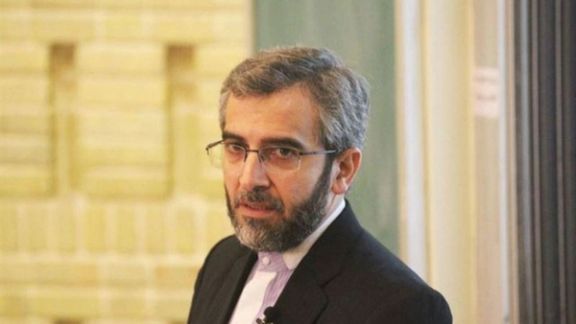
China’s foreign ministry has announced that it held a meeting on Monday with Russian and Iranian diplomats over nuclear talks scheduled to resume in Vienna.
The statement on Tuesday said that Vice Foreign Minister Ma Zhaoxu held a video conference with Russian Deputy Foreign Minister Sergei Ryabkov and Iranian Deputy Foreign Minister Ali Bagheri-Kani.
“The three sides exchanged in-depth views on the Iranian nuclear issue and reached broad consensus. China, Russia and Iran will continue to strengthen coordination and cooperation, ensure that the talks on resuming compliance with the Joint Comprehensive Plan of Action are on the right track, and strive for positive results as soon as possible,” the statement said, without providing any further details.
The Vienna talks suspended by Iran in June are set to resume in less than two weeks, with Iran presenting a much tougher posture, demanding all US sanctions to be lifted at once and also guarantees that no future US administration would withdraw from an agreement.
Six rounds of talks from April to June were focused on how the Joint Comprehensive Plan of Action (JCPOA) could be restored, including which US sanctions would be lifted and the sequence of mutual steps in reviving the agreement.